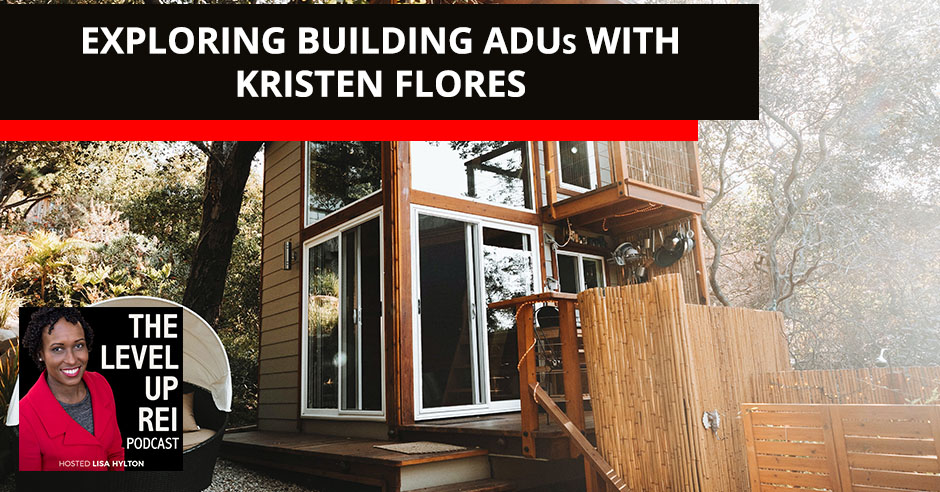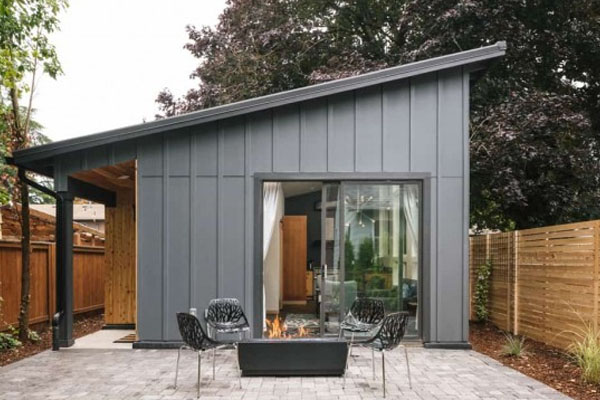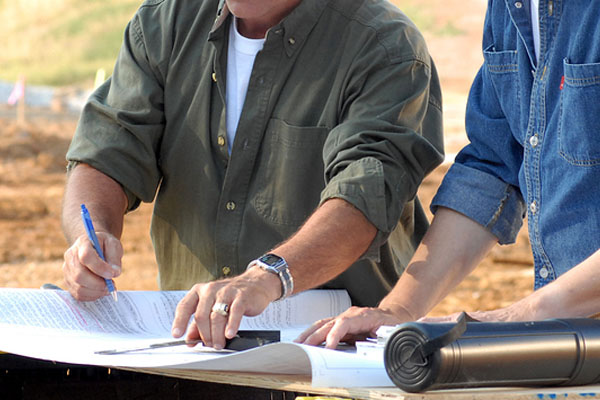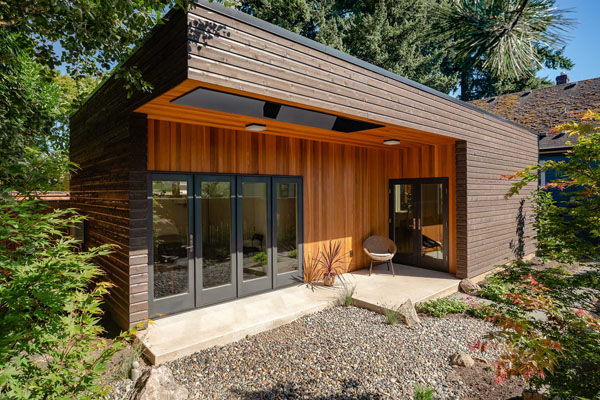
ADUs are accessory dwelling units added to the primary dwelling. In this episode, host Lisa Hylton and guest Kristen Flores explore building ADUs. Kristen is the Co-Owner of Flo Engineering Inc. that specializes in helping you with all your construction needs. In January 2020, the state eased up on and started to incentivize homeowners to build ADUs. So in the coming year, Kristen hopes that building ADUs will be more geared towards housing to people who need it. But how will building ADUs help solve the housing crisis? If you want to explore building ADUs, this episode’s for you. Tune in!
—
Watch the episode here
Listen to the podcast here
Exploring Building ADUs With Kristen Flores
I am excited to have on the show, Kristen Flores. She is the Construction Program Manager and Principal of Flo Engineering, who specializes in helping people navigate the ADU build process right here in Southern California. Welcome to the show, Kristen.
Thank you so much. I’m very excited to be in discussion with you. It’s going to be a great conversation.
You are a fellow finance and accounting background person as well.
I did work for a national CPA firm, The Siegfried Group, for about seven years. I did not do any of the technical accounting. It was just high-level stuff.
That all counts. I also want to give a quick shoutout to Lunchclub because that’s how we met. I don’t know who invited me to Lunchclub, but I am grateful for that invitation. If the universe saw that I was open to meeting people and brought it into my inbox. You were my first Lunchclub date, which was awesome.
That’s an honor, especially on Lunchclub now, because there are many. We should thank Lunchclub.
We are going to be talking about ADUs, specifically in the Southern California area. The ADU laws change state to state, correct?
They do change state to state. California ADU was created in 2017. Those regulations were very strict. It wasn’t until January 2020 when the state eased up on restrictions and started to incentivize homeowners to build these ADUs.
Be clear and specific about what you want. Share on XI had no idea that it was in existence before. Let’s start there. What were some of the key things that were put in place in 2020? What are the benefits to homeowners?
Compared to 2017 and 2020, there’s huge, specifically, everything from how you build from the ground up. I believe the setbacks were originally seven feet, now they’re four feet, depending on which area you’re in, in Los Angeles. Square footage used to be capped at a certain maximum square footage. Now, it’s 1,200 square feet or 50% of the primary dwelling. It used to be that you not only had to go through a plan check through the city permitting process, but you also had to get acceptance from the local HOA or the local planning community organization.
There were a lot of people who had to approve your ADU for you to get the right order in place. There were a lot of hoops for homeowners, and who has time for that? What the city found was that ADUs were not going through the permitting process. The federal government said, “California, you’re in this severe housing crisis. What are you doing to improve? If we’re going to give you money, show us that you’re putting the money where you need it the most.” That’s when California decided that in 2020, it was best to ease back and incentivize these homeowners.
Can you then talk about some of the benefits? Someone who’s reading this own their own home here in Southern California. They’ve been hearing about the laws, and they’re probably thinking, “Is there a benefit for me going through the cost of setting up an ADU?”
On the cost side, there’s always risk and reward. When it comes to different financial vehicles to help finance these ADUs, there are options out there. If you want to go the affordable housing route, if you want to build a one-bedroom ADU or even a studio ADU attached or detached from your primary dwelling, there are programs where the City of LA will help you go through the financing process, low-interest rates when it comes to loans and will help you determine the right tenant.
They will guarantee that the city themselves will pay for a certain percentage of the rent payment so that the homeowner feels confident that they will get paid. There’s that avenue. There are also grants as well if you choose to rent to a senior citizen or high at-risk individuals. There are also HELOC programs. There are construction loan programs out there. There are creative financial vehicles to help finance these ADUs.
Before we go any further, I feel as though I didn’t ask you what are ADUs, to begin with. That’s probably beneficial to also define for people.
Accessory Dwelling Units are what ADUs are. They are on a lot in addition to the primary dwelling, so there needs to be a primary dwelling. What they need is a kitchenette, sanitation, livable quarters, and a separate entrance. That is what defines an ADU.

Building ADUs: It wasn’t until January 2020 the state eased up and started to incentivize homeowners to build ADUs.
What are some of the biggest hurdles in considering to build or decide to have an ADU? Go through the process.
When I’m speaking to homeowners, the biggest hurdle is the beginning. Say you have a 7,000 square foot lot, and your primary dwelling is only 2,500 square feet. You have this extra square footage to build on that you could be making passive income through. A light bulb goes off. It comes down to, I call it the five clarifying questions. It’s why, what, where, when, how, and with whom. Beginning with the why.
Why would you want to build this ADU? Is it for passive income? If so, what passive income would be worth it to you? Is it the income you would get from a two-bedroom ADU? Are you okay with the income that would come from a one-bedroom ADU? Is it a studio? Back into the numbers from there because a two-bedroom ADU is going to be the most expensive. Is it worth converting your garage? There are many different avenues. It’s the questions in the beginning that’s making sure people get clear and specific about what they want.
What you don’t want is to purchase a loan, go through the whole process, and then all of a sudden decide, “We could have easily got a lesser amount and in less debt for the same amount of outcome.” This is why I always say HELOC is the best because that’s how you are reassured you’ll never get more money than what your property’s equity is worth. They only give you the money based on your equity.
When they’re applying for this HELOC, it’s going to before they’ve done the ADU on their property. Do you find that once the ADU is done, the value of their property could have potentially increased as a result of them adding that ADU or not necessarily?
Absolutely. There are statistics, and the property will be 10X is what you’re expected. Let’s say you’re renting an ADU for $1,500, then your property’s value will be $1,500 times 10 is what will be the added value to your property or what’s estimated.
We’re talking a lot about homeowners, but some of these people maybe they have an investment property in California. Maybe they have a duplex or maybe even a fourplex. To the extent that their land has the ability to put an ADU, is that possible as well?
You do not need to be owner-occupied on your property. That is only until 2025. If you do have that type of investment situation, then I would say now is the best time to build an ADU because come 2025, the city is going to reregulate and think back on how many permits were issued via that type of situation and then reassess.
Being tight and gritty about your schedule and timing is vital for success. Share on XAre there any other aspects of the ADU laws that also have a time limit in the future as well?
Technically, all of them until 2025. Now that they’re definitely on the easier side or lighter side is why homeowners should decide to build now.
I had no idea about that. They’ve gotten clear that they want to do an ADU? What is the second step in this process that they’d need me to do?
A lot of times, homeowners know a general contractor, someone who understands construction and definitely reach out to one of those professionals. The biggest value add that we bring to a project is because we already have our team of consultants or contractors that we can pull from. We also understand the permitting process and when it comes to budgeting because you went through those five clarifying questions. You need to design, and there’s value engineering included in that.
You need someone who’s your advocate who can speak both languages, sometimes on both sides from the client versus the builder. The second step is to identify who you want on your team because it saves you much time and money. Don’t get me wrong, homeowners can absolutely construct themselves or put together your team, but it’s overwhelming. In the long run, you’ll run into change orders, and then you’re like, “How am I $50,000 over budget?” That’s a nightmare. Working with someone who knows what construction, material, and labor look like is important.
What is a process for homeowners or investors who decide to choose you guys to go through your engineering, Flo Engineering? What is the process to go through you guys to build an ADU?
We do not have our general contractor’s license. We are only a construction program manager. How we got into this ADU space was I was looking to fix and flip a property. My father and I went to go look at this amazing property, and a grandmother was selling her amazing home. She said, “My kids said that I probably won’t get this amount for my home after COVID, so now is the time to sell, and I’m selling. I cannot afford to purchase another property close by. I’m moving away from my family and my grandchildren. I’m worried. I wish they could like convert their garage into a room and a kitchenette for me.” I said, “They can.” She said, “They have no idea. They have no clue. They’re busy.”
I said, “I can help them. That’s my space, and this is what I do, so I can definitely get involved.” That’s when I started to work with the city and different engineers on what these ADUs look like and how much of the impact they make on the local community. What the process looks like for us is if you have questions or even regarding feasibility analysis, I am here for that. We have hourly packages, so it’s not like we have to be pre-construction, construction, post-construction. We can come in at any point and help with whatever you need. It’s empowering the homeowners. That’s our priority.

Building ADUs: The biggest value we bring to a project is because we already have a team of consultants or contractors we can pull from.
To be clear, you were purchasing her home and then listening to what she says about what’s going on in her family. Then seeing the need to be able to provide the services of adding an ADU to a separate home of her family.
I truly believe in the housing crisis that we’re in right now, the City of LA. I’m a born and raised Angeleno. It hits me hard when I go into certain areas and see how severe this crisis is.
I feel like the ADUs are a great answer to help to provide some more affordable housing options to people.
I’m excited to see what the statistics are at the end of 2021 in terms of affordable housing. For 2019 to 2020, the ADUs that were permitted, a lot of them were for additional office space or for traveling relatives, which is also important, but it wasn’t focused on affordable housing. In 2021, we’re hoping that it’ll be more geared towards housing to people who need it.
This then brings me back to some of the things that you’ve talked about the way in which homeowners can receive assistance and financing from the government, both grants and all the different types of programs. If they choose to go through some of those programs, they would be providing affordable housing.
Those programs are geared towards then helping because the government is getting involved. Sometimes if people are doing the ADUs themselves, they might be choosing to Airbnb them or add additional income for themselves. It doesn’t necessarily help with the crisis per se. That is something to note.
There are leap programs. There are great programs. You should be able to do what you want with your property. Someone sent me an article about how the Olympics are coming here in 2028. Property value is going to skyrocket, and the number of travelers that Los Angeles will receive. It’s an exciting time for homeowners to gear up and get ready because that’s a lot of money on the table when the Olympics are in town.
Are there hidden costs or hidden issues and concerns that people need to think about when deciding to go down to the ADU path?
Do your due diligence, but the ADU process should be exciting. Share on XIt can be anything from, will this ADU be hooked up to a separate meter? Are you on a separate private sewage system? Do you have a different septic tank? Having consultants who understand the logistics of building from the beginning, not necessarily even like their framework or foundation, everything from the soil even. You would hate to even go through this design permitting process to be $20,000 in, and then inspectors come out, and they say, “Given you’re considered on a hillside or sandy area, you need a soils report. We can’t approve anything.”
You’re going to start from the beginning. That’s where the hidden costs come from. During these COVID times, materials and construction are in higher demand. Therefore, prices are higher. Working with teams who have good relationships with where they’re getting their material and who are honest about their schedule and timing is important.
Also, labor as well, working with teams who have that access to labor would also be very key.
There is a severe shortage of labor as well. That’s what’s important. Every consultant that we bring on or that we hire onto our team is aware of the projects that they’re on and where their guys are. We know if they’re running scars or if they have enough bandwidth to cover this project or not. That’s one of the biggest added values as well.
Anything else on ADUs that I didn’t ask you that would be good to share?
Depending on where you live, each city is very different, and each planning department is different. Homeowners can get excited, and you call the city, and you’re saying, “I want to build an ADU.” Don’t be discouraged if they come back with questions, and you’re like, “I didn’t think about this.” That’s their job also, is to question you. Do your research do your due diligence, but the ADU process should be exciting. You’re adding to your property. You brought for a primary dwelling, yet you’re building another. That’s huge.
The reason why ADUs are important, or they’re so reasonable, is because the primary dwellings that were built in Los Angeles were built many years ago. These were homes that were built for the average family of four-plus. Now 70% of households are for four people or less. It’s additional space. You can build the ADU, and then you never know if you can rent out the primary dwelling, and then you move into the ADU. There are many possibilities out there.
Do ADUs have to be only one story, or could they be two stories?
There is a height limit. It is 16 feet or no higher than the primary dwelling. If you have electric lines or poles on your property, then there are those setback restrictions also. For garages, you can build on top. There’s that availability as well.

Building ADUs: In 2021, we’re hoping building ADUs will be more geared towards housing to people who need it.
If the readers want to learn more about your services because your services are a white glove type service for the ADU process, right?
Yes.
That means that people don’t need to lift a finger. They are working with you, and you’re managing the entire process from beginning to end. All those people out there who want the ADU but don’t want to do all the work, here you go. It’s like you’ve gotten a gift. Where is the best place they can go to find out more about your company and business to get ahold of you?
The best way to get ahold of us is probably via email. My email is Kristen@FloEngineering.net. That’s also on our website, and our website is FloEngineering.net. Everything is there. If you have any questions feel free to reach out. My number is on our website as well. We’re here to answer questions.
I appreciate it. Thank you much for coming on. I do know that you do other things outside of ADUs. Feel free to share as much as you want regarding that as well.
Thank you. We also offer concrete services. We have our CA license. That’s an exciting time as well. We do not do concrete for residential. We are focusing on civil and public works. That’s everything from sidewalks to concrete slabs on the freeway, on roads, and it’s very large projects. What we say is that we believe that we should build, create, and enjoy together. That’s our motto.
Thank you much for coming to the show. I appreciate it. Go on and check out Kristen Flores.
Thank you so much.
Important Links:
About Kristen Flores
 Kristen Flores, Construction Program Manager and Principal of Flo Engineering, who specializes in helping people navigate the ADU build process, to give us the details of what it takes to build an ADU in Southern California.
Kristen Flores, Construction Program Manager and Principal of Flo Engineering, who specializes in helping people navigate the ADU build process, to give us the details of what it takes to build an ADU in Southern California.Love the show? Subscribe, rate, review, and share!
Join The Level Up REI Podcast Community today:

Recent Comments